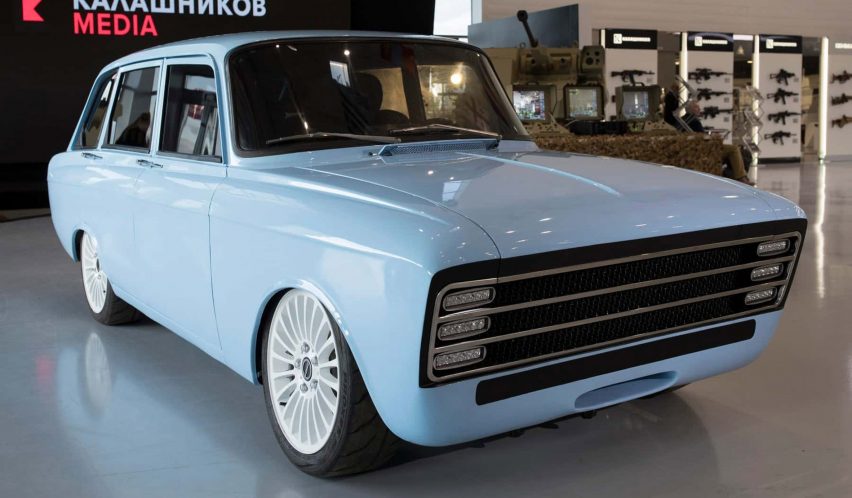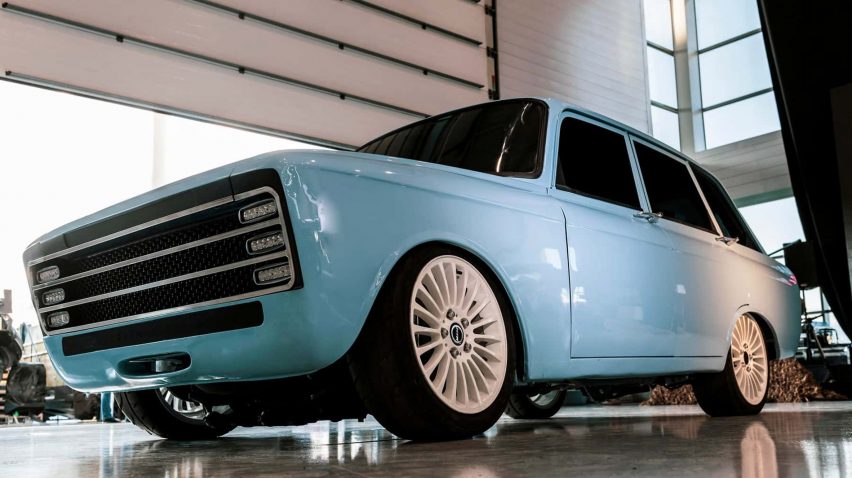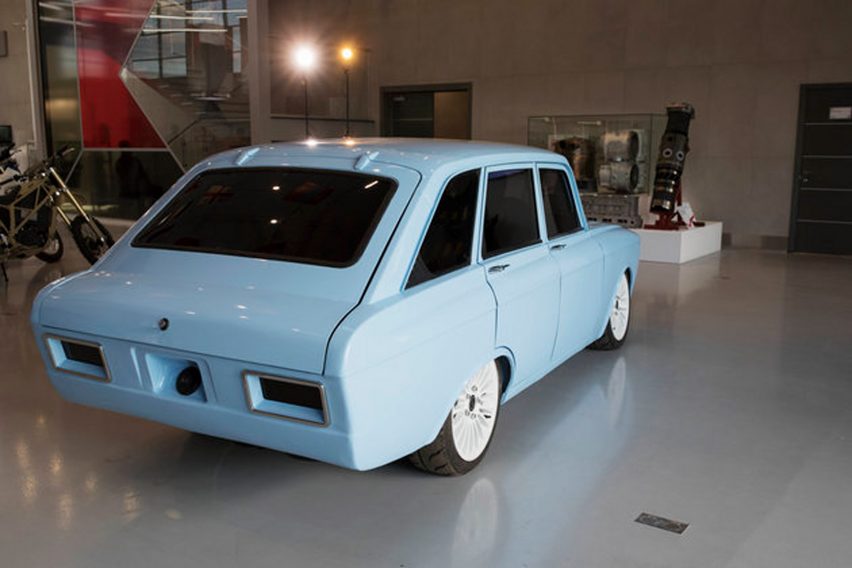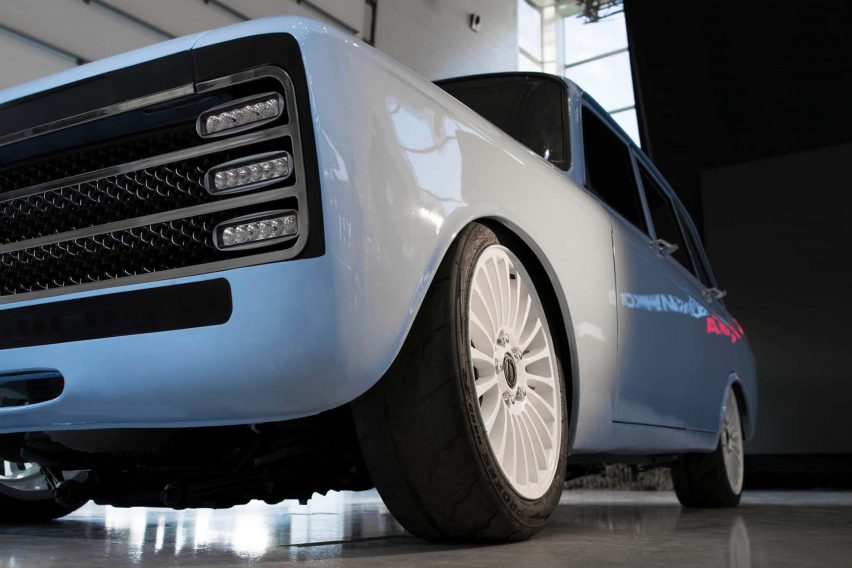
Kalashnikov unveils prototype electric car to "keep up" with Tesla
Russian defence manufacturer Kalashnikov, best known for its AK-47 assault rifle, has revealed a concept electric car that it believes will rival Tesla.
Kalashnikov based the design of the pale blue retro-looking vehicle on a 1973 motor – the 2125 Kombi – produced by Soviet car manufacturer IZh.

Currently called CV-1, the car can reportedly travel for 217 miles per charge, and can reach 62 miles per hour in six seconds.
"The car is competing with Tesla because it's currently a successful electric vehicle project," Sofia Ivanova, Kalashnikov's director of external communications, told Russia broadcaster RBC. "We expect to at least keep up with it."

In comparison Tesla's cheapest electric car, the Model 3, can travel at least three miles further per charge, and reach 60 miles per hour in under 5.6 seconds. The company's Roadster reaches the same speed in 1.9 seconds.
When pressed, Ivanova was not able to offer any specific advantages of the Kalashnikov model over Tesla's offering. In a statement the company referred to "complex systems" and a "revolutionary inverter".

The car was unveiled to industry and press at Army 2018, an international trade fair showcasing 28,000 items for the consumer and military market from over 1,500 companies, held at the Patriot Expocenter to the west of the Russian capital.
Kalashnikov also displayed a prototype for a nearly four metre high immobile robot which can operate without human assistance at the fair, which it stated could have both civilian and military functions.

Best known for producing weapons, the company is keen to expand its reach into remote weapons stations, drones and special-purpose boats. It currently produces 95 per cent of arms sold in Russia and supplies 27 countries worldwide.
Other car manufacturers and design studios have set their sights on the electric car market. BMW made a prototype all-electric Mini earlier this year, to mark its intention to produce its first fully electric range of cars in 2019.
Last year Volvo committed to producing only electric or hybrid cars from 2019, signalling the phasing out of the combustion engine. Dyson is also set to launch an electric car, in 2020.
Photography is courtesy of Kalashnikov.